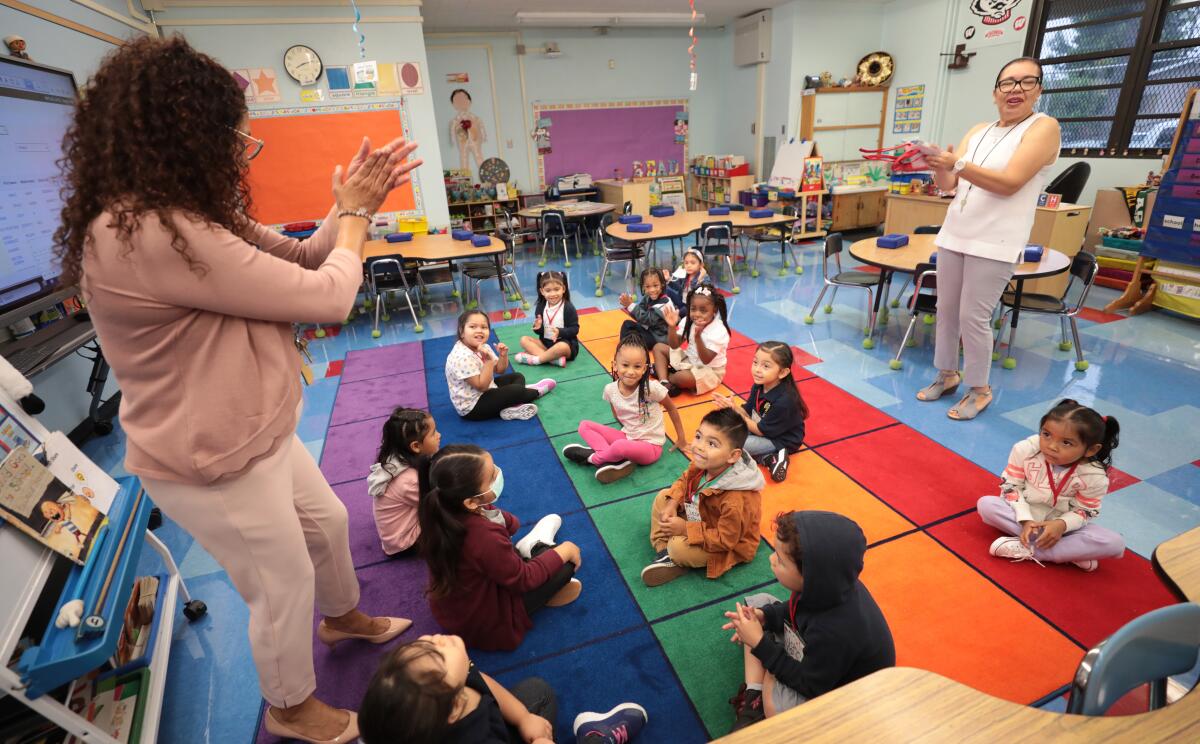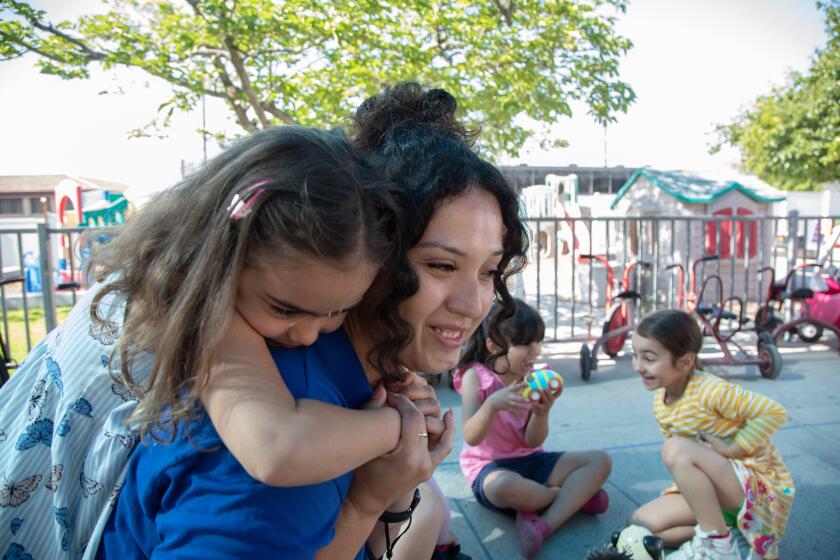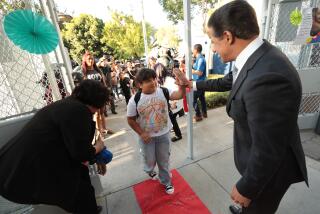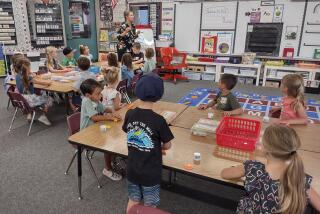California public school enrollment drops again, but transitional kindergarten is up

Enrollment at California’s public schools continued to decline this year, but by only .25%, or 15,000 students, state data showed, a much slower pace than the steep declines experienced during difficult pandemic years when classes were forced online.
A total of 5,837,690 students were enrolled in the 2023-24 school year, according to data released Thursday from the state Department of Education. During the 2020-21 academic year, California experienced the largest drop in 20 years, losing 160,000 students.
Reading by 9’s guide to reading readiness. Find expert tips, book recommendations and resources for parents of kids under age 5.
Although the outflow of students may have been stanched, “I would characterize that as the thinnest of silver linings,” said Thomas Dee, a professor at Stanford Graduate School of Education. “The real story is that students haven’t returned, and our schools have yet to adjust to the new reality.”
Some of the decline was due to population loss during the pandemic, as families moved out of state, but it was also driven by families who turned to private schools or homeschooling. While many school districts hoped students would return as the pandemic faded, that does not appear to have happened.
In a sobering data point, the number of homeless students enrolled in public schools continued to grow, with a nearly 13% increase this year — an additional 23,609 children.
“We’re still dealing with the very serious consequences of the pandemic,” Dee said. In some districts, including Inglewood, San Francisco and Oakland, “genuinely painful discussions have begun around closing schools.”
But there was also a bright spot in the data: Enrollment in transitional kindergarten — California’s newly expanding grade for 4-year-olds — doubled over the last two years, from 75,465 in 2021-22 to 151,491 in 2023-24, the state wrote in a news release.
Deciding between preschool and transitional kindergarten isn’t easy for parents. Here’s how eligibility, structure and academic environment may differ.
The state did not provide separate figures for enrollment in TK last year, but instead combined it with kindergarten students. TK enrollment was at 98,000 in the 2019-20 school year, before the pandemic dip and before the program was expanded to younger 4-year-olds.
“I am very grateful to see this exciting outlook for our earliest learners,” said state Supt. of Public Instruction Tony Thurmond. “We know how important it is for support for every child to read by third grade, and a critical part of that effort is to make sure that our youngest students are supported to have healthy development in their early years.”
Gov. Gavin Newsom has said that he hopes 400,000 students will be enrolled in TK by 2025, when the program is in full swing.
“It’s encouraging that more families have heard about and feel comfortable enrolling their 4-year-olds in TK,” said Bruce Fuller, a UC Berkeley professor of education and public policy. But the question, he said, is whether statewide preschool access is really expanding.
As transitional kindergarten expands across the state, California’s child-care industry is left scrambling to fill empty spots they once depended on.
“TK is clearly drawing 4-year-olds out of other programs,” including private preschools, Fuller said. The California State preschool program, meanwhile, has lost 9,000 4-year-olds since 2021, and Head Start has lost 48,530 3- and 4-year olds since 2018, according to a UC Berkeley report due out next month.
“Ideally, the government would expand access overall,” Fuller said.
This article is part of The Times’ early childhood education initiative, focusing on the learning and development of California children from birth to age 5. For more information about the initiative and its philanthropic funders, go to latimes.com/earlyed.
More to Read
Sign up for Essential California
The most important California stories and recommendations in your inbox every morning.
You may occasionally receive promotional content from the Los Angeles Times.















